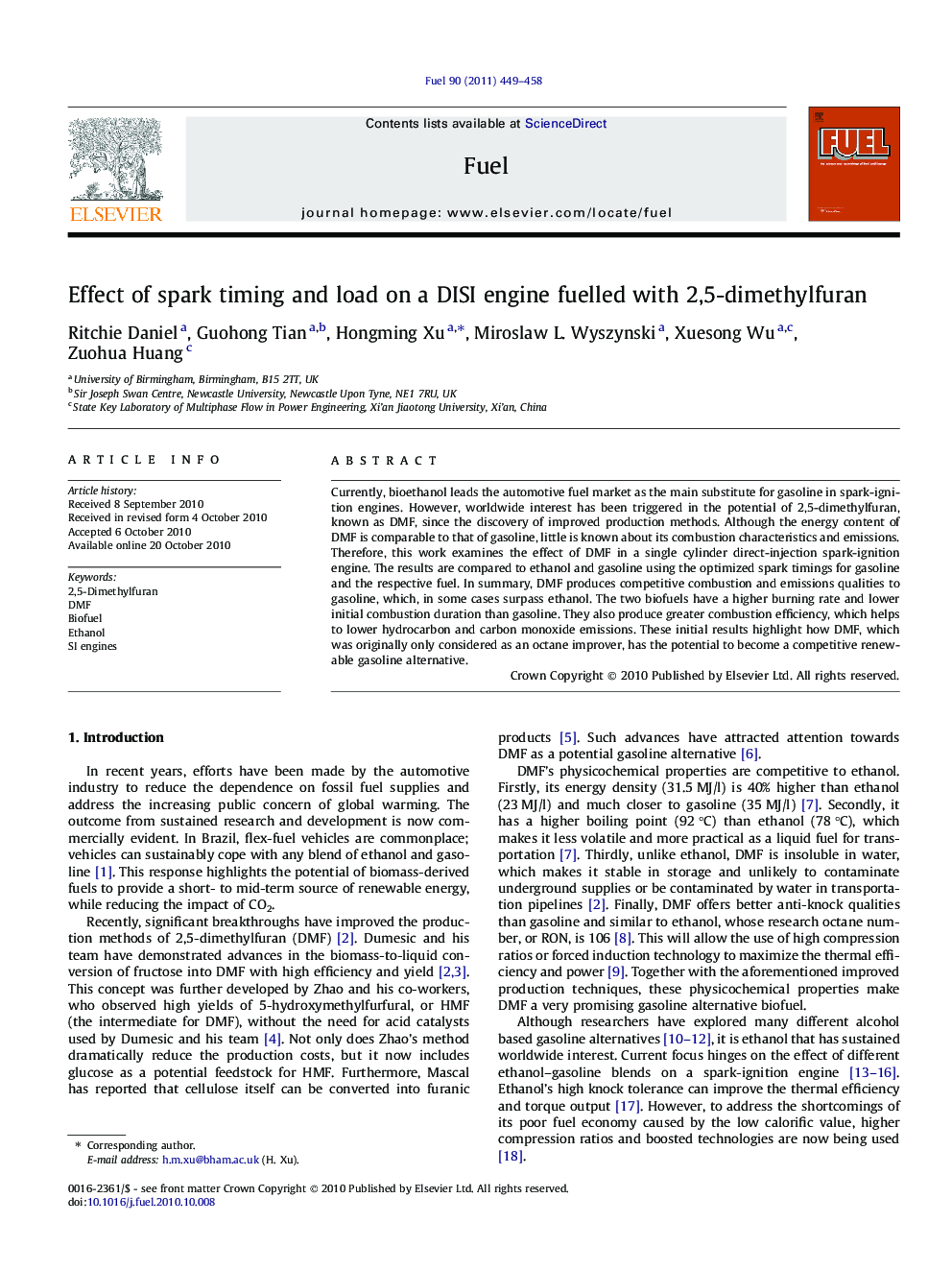| Article ID | Journal | Published Year | Pages | File Type |
|---|---|---|---|---|
| 206628 | Fuel | 2011 | 10 Pages |
Currently, bioethanol leads the automotive fuel market as the main substitute for gasoline in spark-ignition engines. However, worldwide interest has been triggered in the potential of 2,5-dimethylfuran, known as DMF, since the discovery of improved production methods. Although the energy content of DMF is comparable to that of gasoline, little is known about its combustion characteristics and emissions. Therefore, this work examines the effect of DMF in a single cylinder direct-injection spark-ignition engine. The results are compared to ethanol and gasoline using the optimized spark timings for gasoline and the respective fuel. In summary, DMF produces competitive combustion and emissions qualities to gasoline, which, in some cases surpass ethanol. The two biofuels have a higher burning rate and lower initial combustion duration than gasoline. They also produce greater combustion efficiency, which helps to lower hydrocarbon and carbon monoxide emissions. These initial results highlight how DMF, which was originally only considered as an octane improver, has the potential to become a competitive renewable gasoline alternative.
